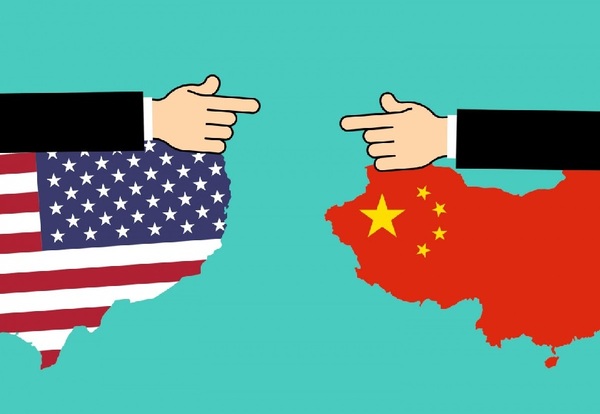
–>
June 17, 2022
The Shangri-La Dialogue was recently held in Singapore. This annual event, sponsored by the British think-tank International Institute for Strategic Studies, brings together ministers of defense and other government officials to discuss security issues and present national perspectives.
‘); googletag.cmd.push(function () { googletag.display(‘div-gpt-ad-1609268089992-0’); }); }
This year’s dialogue was dominated by the clash between U.S. Secretary of Defense Lloyd Austin and China’s Defense Minister Wei Fenghe. Austin spoke first: “Today the Indo-Pacific is at the heart of American grand strategy… No region will do more to set the trajectory of the twenty-first century than this one.” He talked at length about America’s allies and partners in Asia including the Quad alignment of India, Japan, and Australia with the U.S.; increased defense cooperation with Indonesia and Vietnam; the importance of Singapore and Philippines; and the alliance with South Korea. And he referenced “new ways to support our European security partners’ growing engagement in the Indo-Pacific.” While the “pivot to Asia” was a policy of the Obama administration, pushing NATO to join that pivot was a major initiative of President Donald Trump. As a result, British, French, Dutch, Canadian and even German warships have joined the U.S. and its Asian partners in the South China Sea, including sailing through the Taiwan Strait to maintain it as international waters. Then Secretary Austin got real. “We will also stand by our friends as they uphold their rights, and that is especially important as the People’s Republic of China (PRC) adopts a more coercive and aggressive approach to its territorial claims…. In the South China Sea, the PRC is using outposts on man-made islands bristling with advanced weaponry to advance its illegal maritime claims. …PRC vessels plunder the region’s provisions, operating illegally within the territorial waters of other Indo-Pacific countries…You know, Indo-Pacific countries should not face political intimidation, economic coercion, or harassment by maritime militias.” While Austin repeated the official line that “we do not support [official] Taiwan independence” he warned Beijing, “We categorically oppose any unilateral changes to the status quo from either side… we stand firmly behind the principle that cross-strait differences must be resolved by peaceful means.” Everyone understood this as a U.S. pledge to defend Taiwan’s de facto independence from a Chinese attack as President Biden stated May 23.
Peace was not the theme of China’s Defense Minister Wei Fenghe speech. On the Taiwan question, Wei declared, “We will fight at all costs, and we will fight to the very end. This is the only choice for China… Those who pursue Taiwanese independence in an attempt to split China will definitely come to no good end. It is China’s Taiwan, a province of China. We will realize the reunification of Taiwan.” On the U.S. alliance system Wei said, “To us, the strategy is an attempt to build an exclusive small group in the name of a free and open Indo-Pacific, to hijack countries in our region and target one specific country.” Wei added, “We request the U.S. side to stop smearing and containing China. Stop interfering in China’s internal affairs. The bilateral relationship cannot improve unless the U.S. side can do that. However, if you want confrontation, we will fight to the end.”
On May 24, the last day of Biden’s Asian tour, China and Russia flew a joint mission of nuclear-capable strategic bombers that menaced both Japan and South Korea. For the two powers to fly together when Russia has invaded Ukraine for the same revanchist reasons that China advances for its right to conquer Taiwan sent a strong message. Biden opened the door for Putin by placing Ukraine outside the U.S defense perimeter; he cannot make the same mistake again by leaving Taiwan in the open.
‘); googletag.cmd.push(function () { googletag.display(‘div-gpt-ad-1609270365559-0’); }); }
 Contrast this to the Washington think-tank Center for Strategic and International Studies (CSIS) June 14th program “Business and Trade are in Our National Interest.” Evan Greenberg, chairman and CEO of the Chubb insurance company, opened by complaining that people think those doing business in China are “unpatriotic, naïve” and place profits ahead of national security. Yet he said little to change those perceptions. For example, on human rights he claimed that since China is a sovereign country, he cannot tell its leaders how to govern their people. And he opposed using trade as leverage to promote change. However, he was eager to tell leaders in Beijing and Washington what they should do to put money in his pocket.
Contrast this to the Washington think-tank Center for Strategic and International Studies (CSIS) June 14th program “Business and Trade are in Our National Interest.” Evan Greenberg, chairman and CEO of the Chubb insurance company, opened by complaining that people think those doing business in China are “unpatriotic, naïve” and place profits ahead of national security. Yet he said little to change those perceptions. For example, on human rights he claimed that since China is a sovereign country, he cannot tell its leaders how to govern their people. And he opposed using trade as leverage to promote change. However, he was eager to tell leaders in Beijing and Washington what they should do to put money in his pocket.
Greenberg’s main thesis was that China has grown so strong since it joined the WTO that it is now impossible to contain it or de-couple from it. He noted that the PRC economy was only 12% the size of the U.S. economy in 2000, but is now 71% as large as the U.S. Yet, he still claimed that the U.S. has benefitted from the trade and investment relationship. He didn’t address how China’s rise is the result of focusing its new economic capabilities on building military power and international influence. What was important to him is that operating in China has made some American corporations more profitable by becoming more efficient (i.e., enjoying lower labor and other costs) and innovative. That this innovation gets transferred to China when production is outsourced there escaped his notice. He did decry the theft of intellectual property and the state-forced transfer of technology, but much of this transfer was freely offered by firms seeking to buy favor with the regime. The Business Roundtable, mentioned by Greenberg, put out a booklet during the debate over Chinese accession to the WTO bragging about how its member companies were contributing to China’s growth and the upgrade of its workforce. I personally saw displays by U.S. firms at the Zhuhai Airshow designed to convince state officials that Americans can be trusted to help them develop further even in such strategic areas as aerospace.
Unfortunately, Greenberg is correct about the extent the U.S. has allowed itself to become dependent on Chinese manufacturing even in key sectors of our defense industrial base. This danger was concisely stated by Acting Assistant Secretary of Defense for Industrial Base Policy Deborah Rosenblum at a hearing on supply chains at the U.S.-China Economic and Security Review Commission June 9. Greenberg conceded that we might need to limit some imports from China, reshore strategic production and even screen capital investments coming from China to buy American assets or going to China to create more menacing capacity. But he insisted that business leaders with ties to China be invited into government strategy sessions to avoid “extreme” measures. He claims that CEOs want business and national policies to align, but it was because they have aligned with the business agenda in the past that China has been built into an existential threat. It is time business was made to align with the national security agenda; building up the strength of the U.S. and its allies rather than continue to support Beijing’s ambitions. It is hoped that Posen’s fear for 2024 comes true; both parties field presidential candidates who would do this.
William R. Hawkins is President of the Hamilton Center for National Strategy. A former economics professor, he has written widely on defense and foreign policy issues for a variety of scholarly and popular publications. He has also served on the staff on the U.S. House Foreign Affairs Committee.
Image: Pixabay
<!– if(page_width_onload <= 479) { document.write("
“); googletag.cmd.push(function() { googletag.display(‘div-gpt-ad-1345489840937-4’); }); } –> If you experience technical problems, please write to [email protected]
FOLLOW US ON
<!–
–>
<!– _qoptions={ qacct:”p-9bKF-NgTuSFM6″ }; ![]() –> <!—-> <!– var addthis_share = { email_template: “new_template” } –>
–> <!—-> <!– var addthis_share = { email_template: “new_template” } –>





